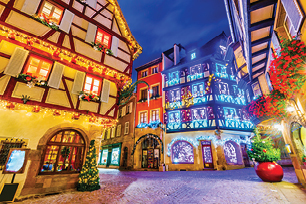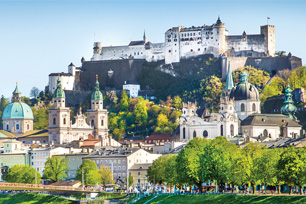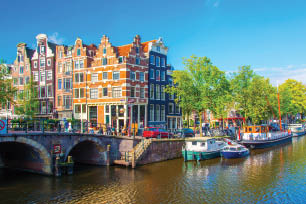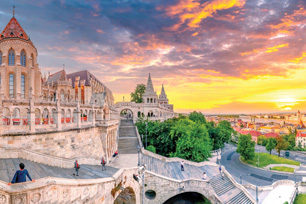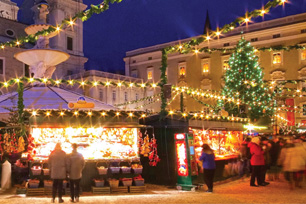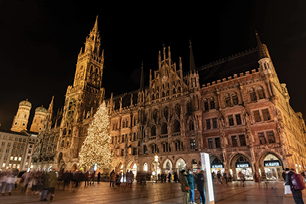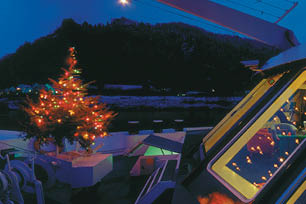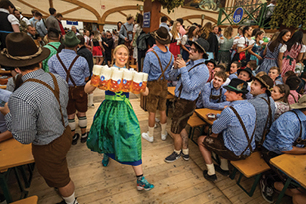Tours
At the heart of Europe, monumental contemporary and historic
events shape today’s Germany. From the fall of the Berlin Wall to the rise of
the Beatles in Hamburg, the culture of the country is marked by its influential
past and present. Imagine yourself exploring postcard-worthy castles such as
Neuschwanstein or wandering through medieval cities such as Regensburg. From
the Bavarian Alps to the Rhine Gorge to the plains of the north, the range of
Germany’s landscapes will capture your heart. Perhaps you’ll also indulge your
taste buds as you sample the delicious Marzipan sweet treats of the Hanseatic port
of Lubeck, which have been produced there for over 200 years. Whether on a
journey on the ‘Romantic Road’ or cruising along the Rhine, know that a stein
of German beer or a glass of wine from the Rhine vineyards are both a worthy
compliment to a destination that offers far more than the average traveler
anticipates.
Explore More
Destination Must-See's
Oberammergau:
The tiny Bavarian village of Oberammergau is straight from the pages of a storybook. You’ll find countless traditional, timbered houses with colourful murals depicting everything from religious scenes to fairy tales. Every 10 years, travellers flock from all over the world to see the city’s famous Passion Play. It all began in 1634 when villagers promised to perform a play depicting the life and death of Jesus Christ every ten years if God would spare them from the Bubonic Plague. No one fell victim to the Plague after that. The tradition continues today, and will be performed in 2022. To join the cast, you must have been born in Oberammergau or have lived in the town for no less than 20 years. This epic play, though performed in German, transcends language barriers and is a bucket list item for many travellers.
Christmas Markets:
Before Christmas was ever celebrated, Germany had special winter markets. These markets were only open for a day or two in early winter to stock up on food and supplies to hold them over in the cold months. With time the markets expanded and craftspeople set up stands selling items often given during the holidays. What makes these markets special and unique compared to other holiday shopping is the atmosphere and quality. Whilst walking the German streets you smell the aroma of mulled wine and baked apples with festive lights and historic buildings. You will not find mass-produced items here, but real quality craftwork.
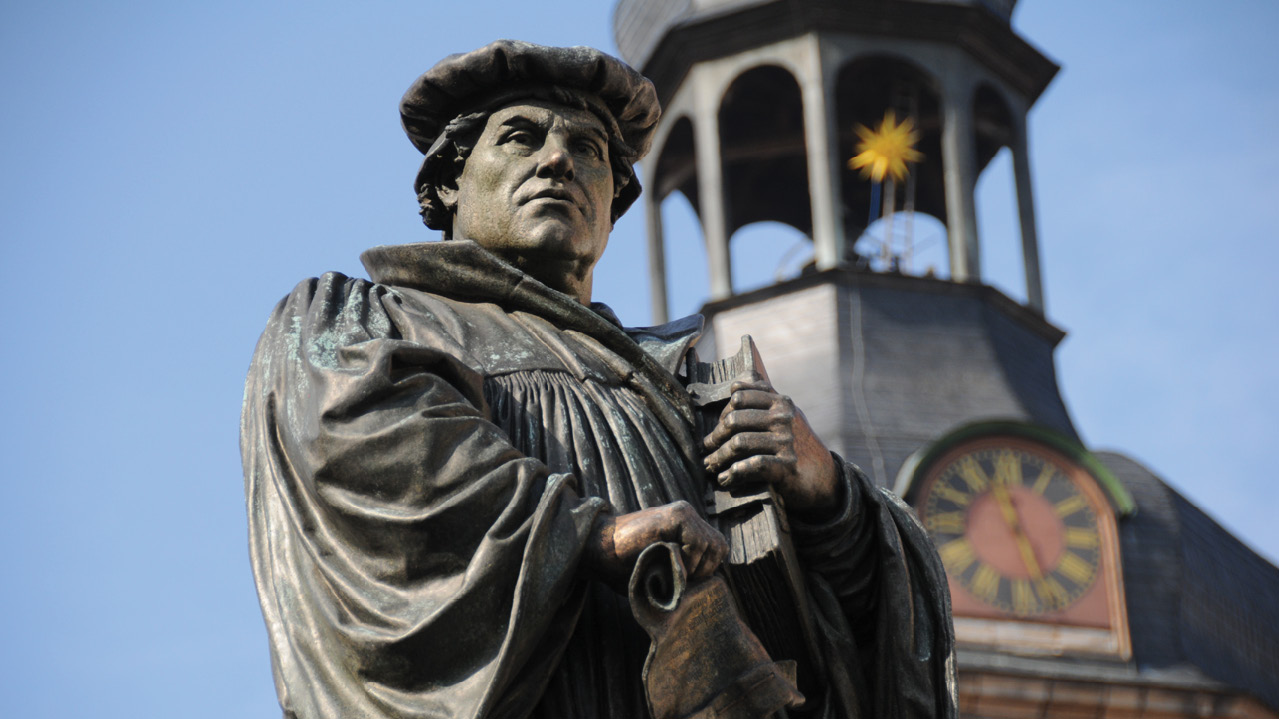
Birthplace of the Reformation:
Over 500 years ago Martin Luther, the monk, professor, and church reformer, nailed his 95 theses to the door of the castle church in Wittenberg. What he had to say changed history forever. Now, five centuries later, Wittenberg and Eisleben pay tribute along with the rest of the country. Local buildings all over town are being renovated, children are learning about Luther in school, and tourists are already visiting.
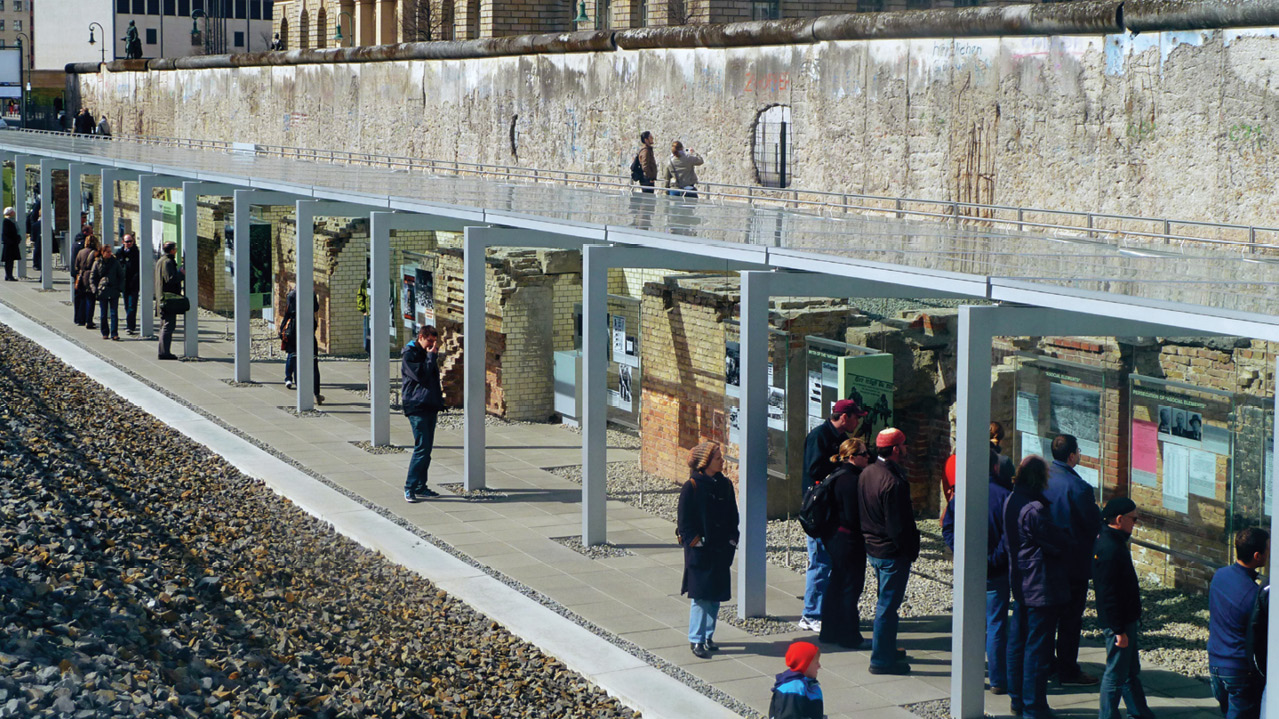
Berlin and the Wall:
After World War II, Germany separated into two countries, with the east as communist and the west as democratic. As the capital of Germany, Berlin became the centre of this divided nation, constructing a wall to contain the segregation. Before the wall was built, citizens in East Germany had begun to move to West Germany to avoid communist rule. After hordes of people began leaving the East, the leaders constructed a wall overnight, shocking the community. Despite initial beliefs, the country was not reunited for some time and the Berlin Wall stayed up for 28 years. Its fall, which happened in 1989, was something that was celebrated all around the world.
Destination Must-Do's
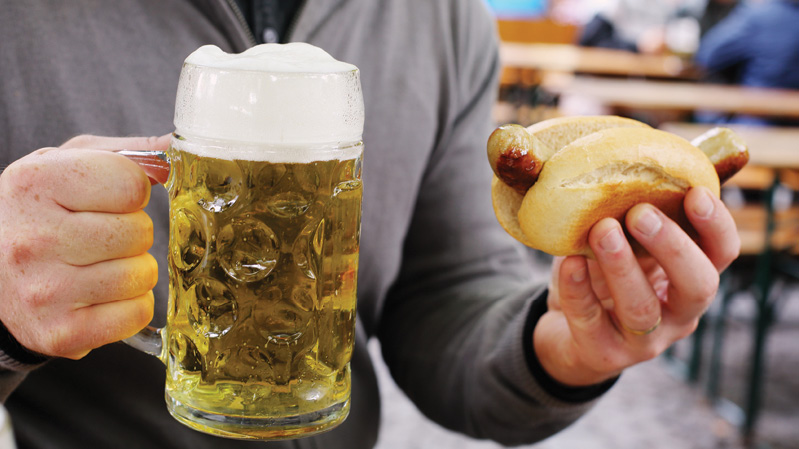
Beer:
German beer gained its popularity due to the outcome of the strict process it undergoes following the Purity law. Made of water, hops and barley malt, German beer tastes much better than any other. Every year from the middle of September to the beginning of October, Munich hosts the world’s largest folk festival “Oktoberfest” for 16 days. People travel from all over the world to take part in the festivities. There are rides, sideshows, costumes, food, and of course, plenty of beer. With 14 big tents and 21 small tents, beer is served from 9am to 10:30pm every day for a reasonable price.
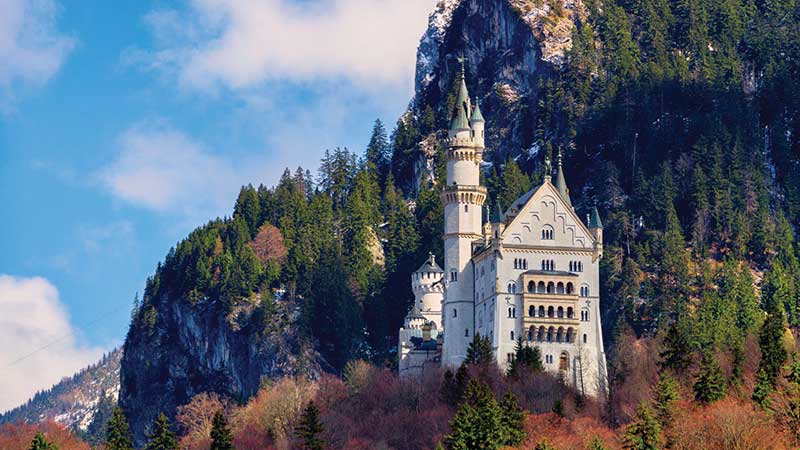
Neuschwanstein Castle:
There are so many beautiful castles in Germany that it may be hard to pick your favorite! One of the most famous landmarks and most visited castle in all of Europe is the Neuschwanstein Castle. This castle was built by King Ludwig II, known as the “Fairytale King.” The mythical look of the castle even inspired Walt Disney to create the Magic Kingdom, he later replicated this majestic architecture for the park’s palace. In addition to Neuschwanstein Castle, Rapunzel’s castle is also located in Germany and will be included in the new tour “Romantic Road and Fairy Tale Road.”
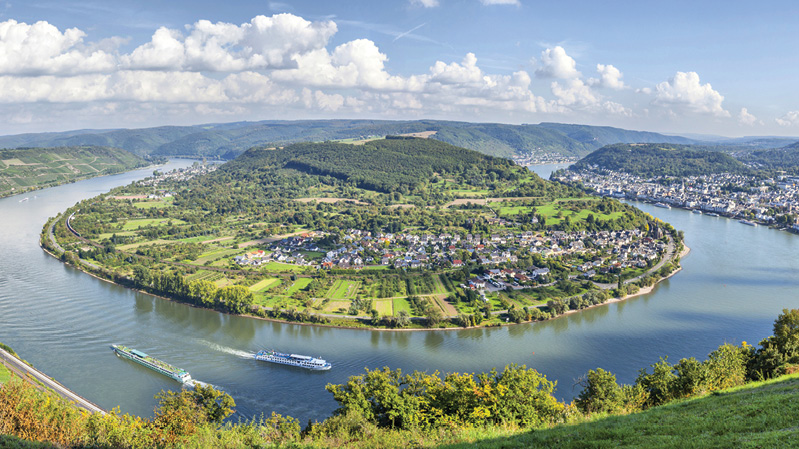
Rhine River:
This river travels through six countries linking southern and northern Europe. It is the only river in the world with so many old and famous cities on its banks. In the Middle Rhine Valley, located in Germany, you will find vineyards, castles and fortresses. It brings together old myths, fairy tales, and romance and truly is a trip back through history.
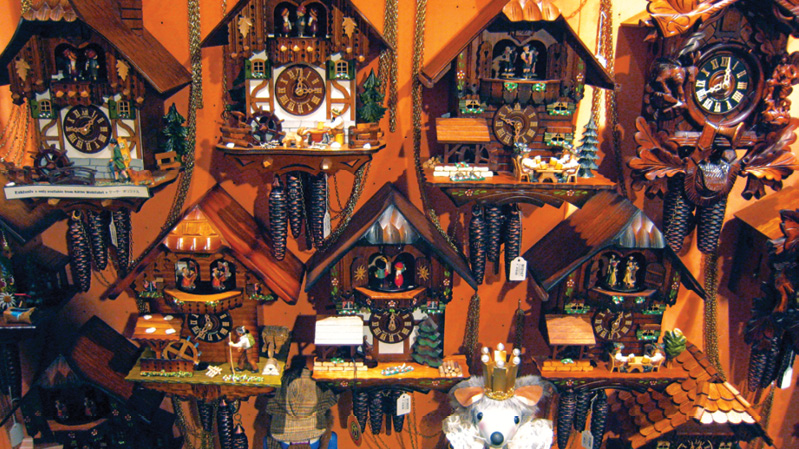
Cuckoo Clocks:
The birthplace of the cuckoo clock is in the German Black Forest. They have become the symbol of the region. The clocks were made in the winter time when the farms were snowed in, and then sold in the summer time. There are two main types of cuckoo clocks and all clocks are hand carved with some of the most beautiful detailing in the world.
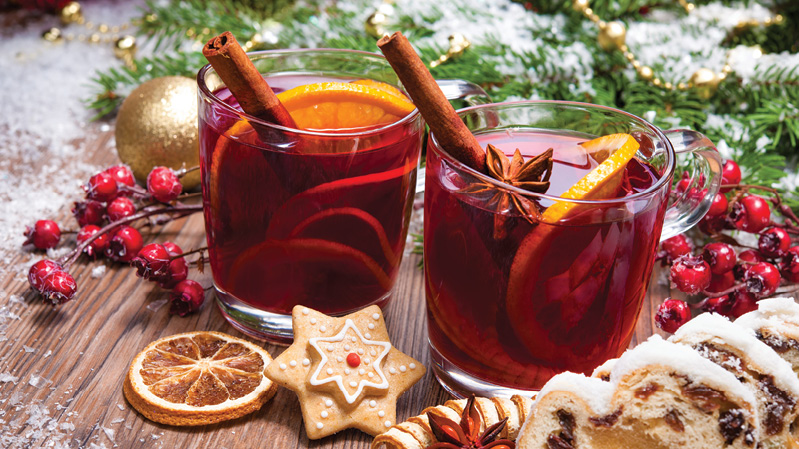
For beverages, nothing beats the hot mulled wine, with or without a shot of brandy, or Eierpunsch”, the traditional egg-based, warm alcoholic drink.
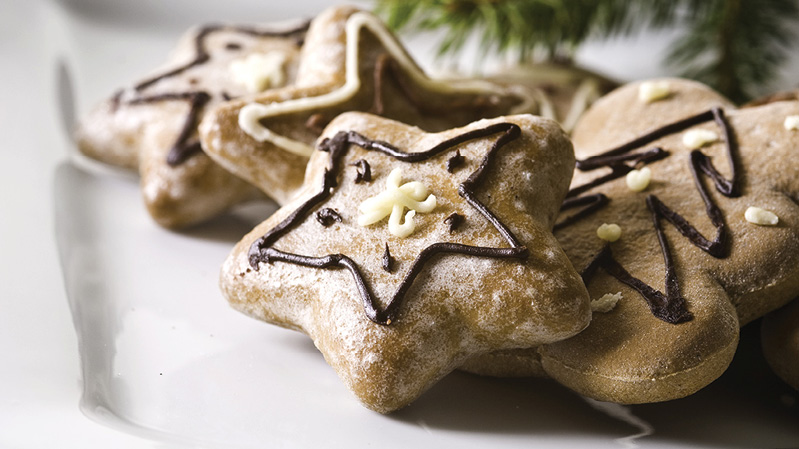
The Christmas Markets have their own special fare to sample including candied and toasted almonds, traditional Christmas cookies made of gingerbread, Stollen, an egg bread topped with candied fruit, Bratwurst, and cheeses served on sticks.
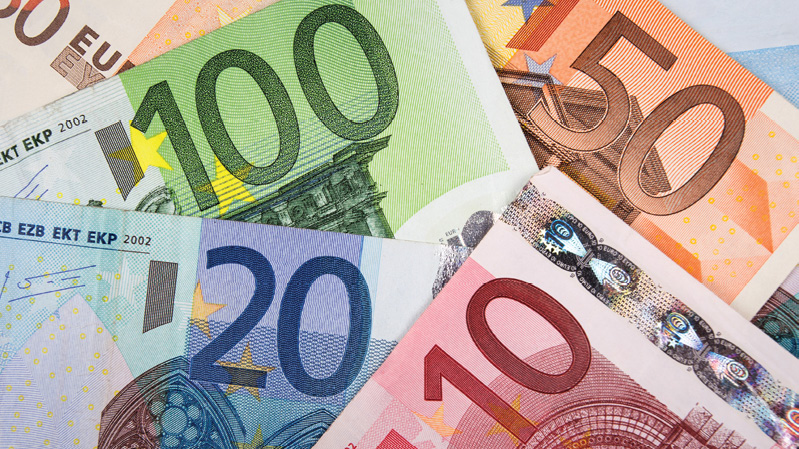
Be sure to hit an ATM; many places in Germany do not accept credit cards.

